From my experience, absolutely! Halo WaterSystems not only provide peace of mind by delivering clean and safe water but also prove to be a wise financial decision in the long run. We'll explore how the system meets health standards, offers cost savings, and aligns with eco-friendly practices—all crucial aspects for anyone considering a robust water filtration solution.
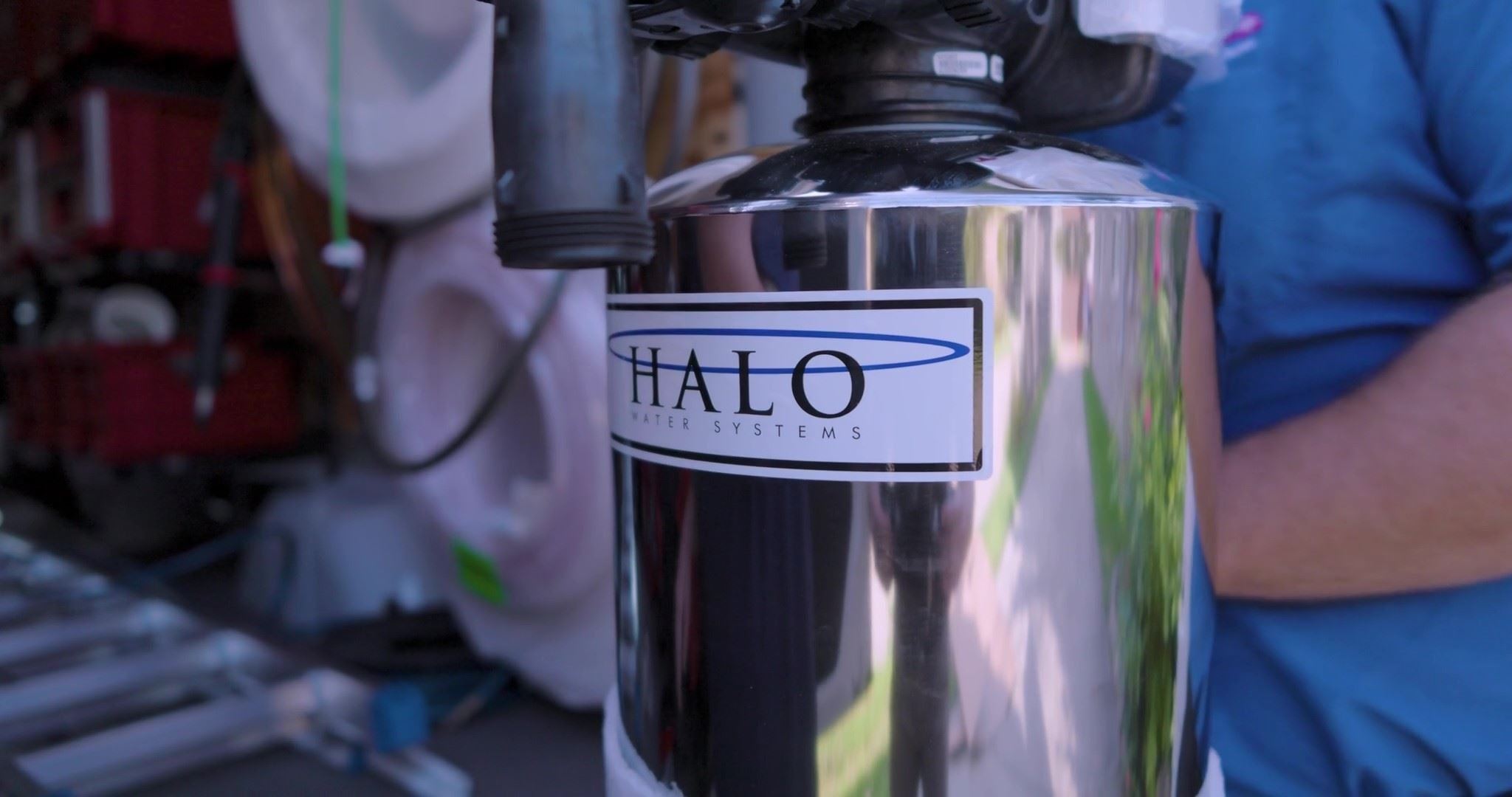
When it comes to keeping our homes and families healthy, few things are as crucial as the quality of our drinking water. With so many options on the market, choosing the right water filtration system can be a daunting task. Among the leading brands is the Halo Water System, renowned for its efficiency and reliability. So, are Halo Water Systems worth the investment? Let’s dive in and find out!
What Makes Halo Filtration Systems Different?
The Halo water filtration technology is designed to tackle a wide array of contaminants such as sediments, chlorine, and harmful bacteria that can lurk in your tap water. Whether it’s the whole-house systems or under-the-sink models, each Halo product promises better performance in filtering your water systems.

Halo Water System vs. Traditional Water Softeners
When choosing a water treatment solution for you as a homeowner, it's very important to understand the differences between modern systems like the Halo Water Systems, particularly the Halo 5, and traditional water softeners. Both the Halo Water Systems and Traditional Water Softeners improve water quality, but they differ quite a bit in their methods, benefits, as well as the overall impact on water usage and the environment.
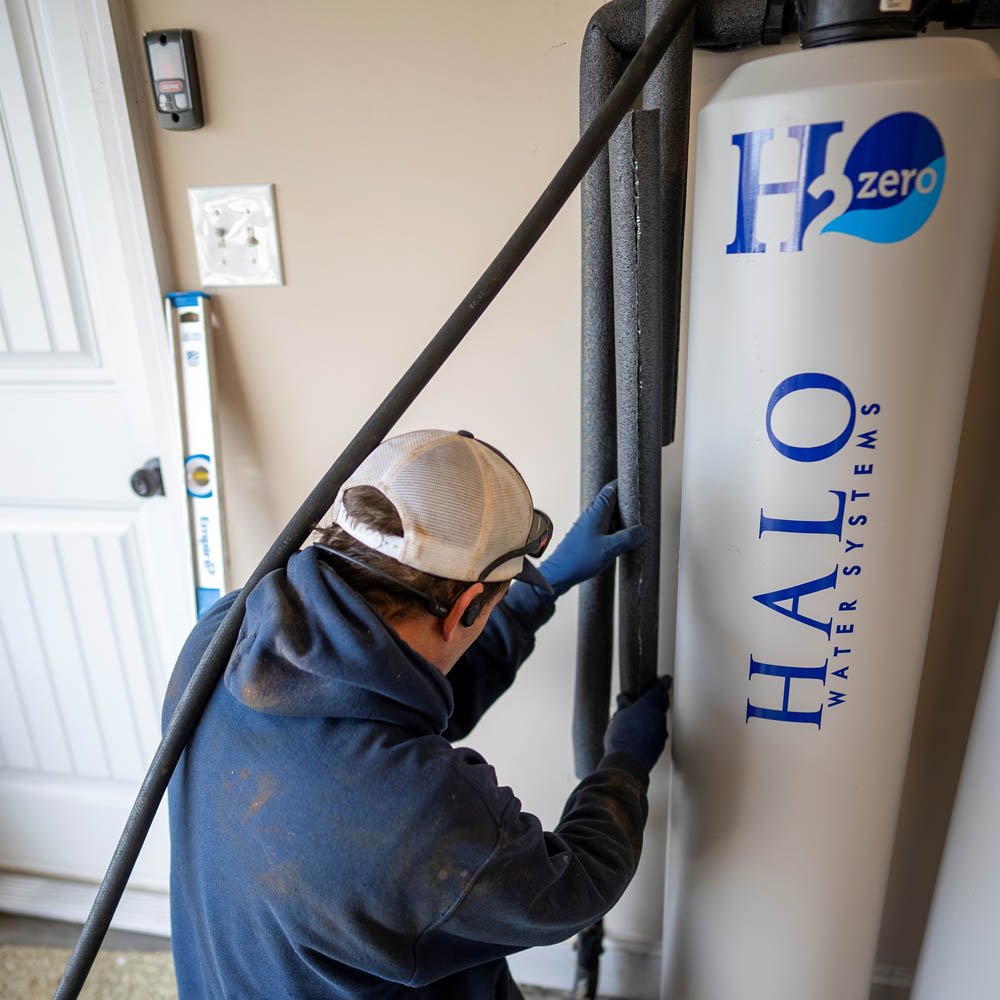
Here’s a breakdown of the Halo 5 system stages:
Below is a step process on how the Halo 5 goes through its filtering process.
- Stage 1: Granular Activated Carbon (GAC) - Removes chlorine, chloramines, and other contaminants, improving taste and odor.
- Stage 2: Catalytic High Activity Carbon (HAC) - Further reduces chlorine and polishes water to remove any unpleasant taste or odor.
- Stage 3: HALO AG Plus - Filters out finer sediments down to 5 microns, clearing up turbidity.
- Stage 4: High Density Garnet Filter Media - Acts as a fine filter and supports the overall system.
- Stage 5: ION Scale Inhibitor Water Conditioner - Prevents scale and corrosion in pipes and appliances, extending their lifespan.
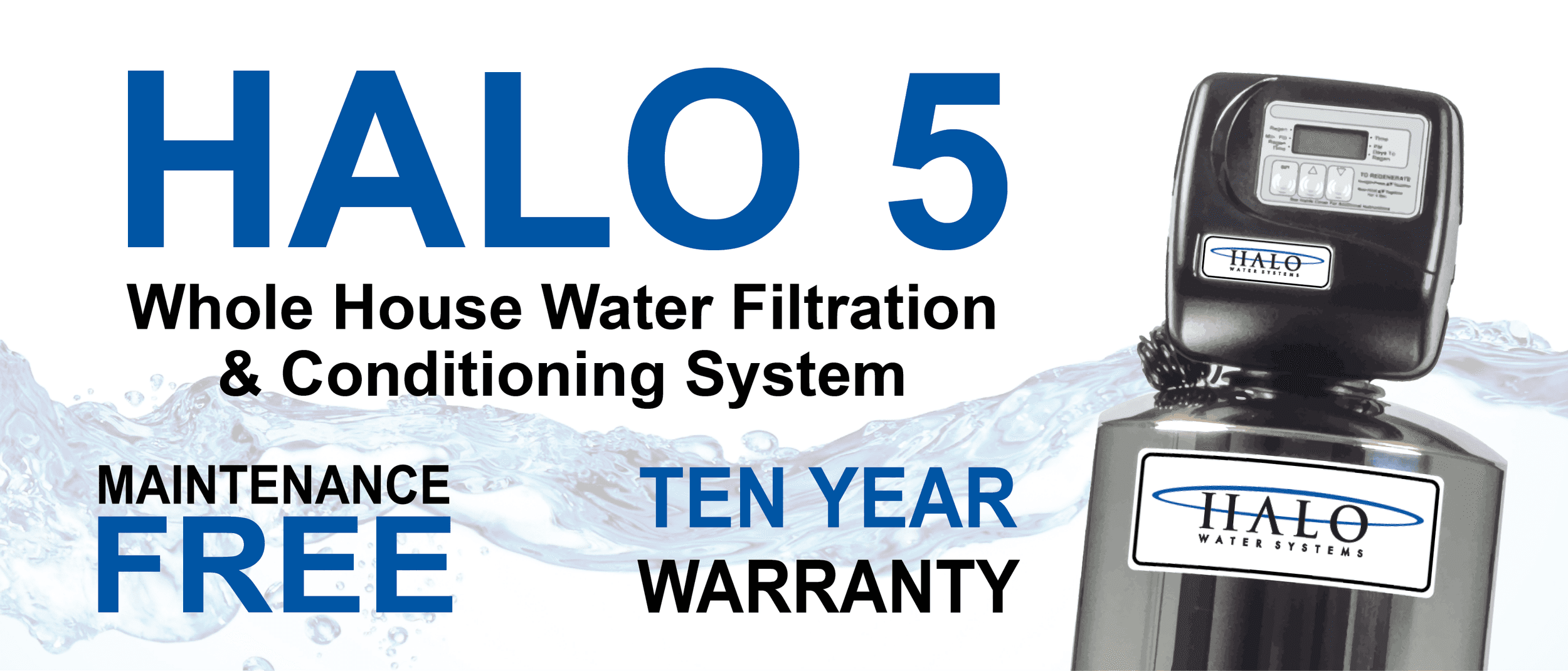
How Traditional Water Softeners Work:
Ion Exchange Process: Traditional water softeners use a method known as ion exchange to remove minerals like calcium and magnesium from water, which are responsible for hardness. This method swaps these minerals for sodium (salt) or potassium ions. While this effectively reduces water hardness, it introduces sodium into the water, which might not be suitable for everyone's health.
Regeneration Using Salt or Potassium Chloride: To keep working efficiently, traditional water softeners need to be regenerated periodically using either salt or potassium chloride. This regeneration process cleans out the accumulated minerals but also uses a lot of water and reintroduces salt into the environment. This can have negative effects, such as damaging plants and contributing to pollution in local water bodies.
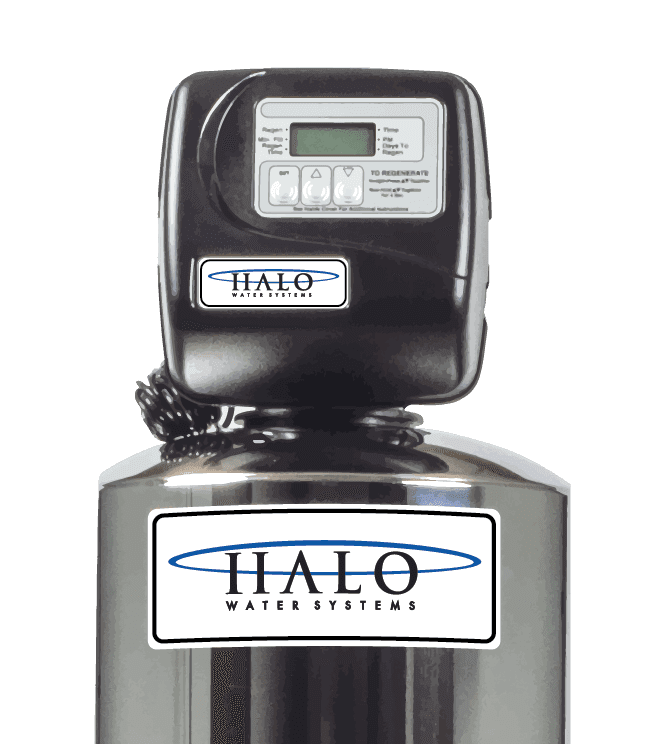
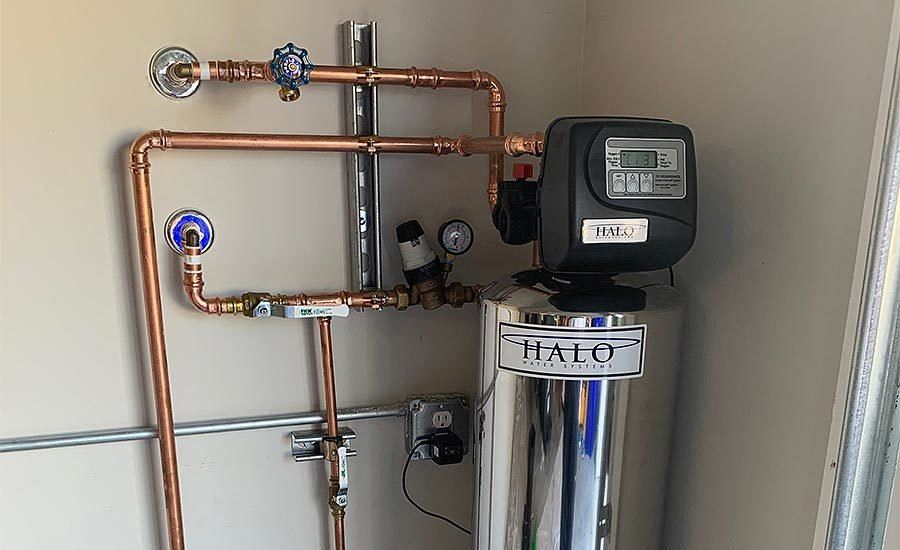
Maintenance and Cost Implications:
Halo Water System:
Low Maintenance: The Halo 5 system is designed to operate without the need for regular maintenance such as adding salt or backwashing. This not only saves time but also reduces the ongoing costs, making it a convenient option for homeowners.
Cost-Effective Over Time: Although the upfront cost of a Halo system may be higher than traditional softeners, it pays off in the long run. Without the need to buy salt and thanks to its lower water usage, the system ultimately becomes more economical.
Traditional Water Softeners:
Ongoing Maintenance and Costs: Traditional softeners require regular purchases of salt and use significant amounts of water for regeneration, which can add up in terms of operational costs. Additionally, the corrosive nature of salt can lead to more frequent maintenance needs and part replacements, increasing the overall cost of ownership.
When researching Halo water systems, I was struck by the number of positive reviews. Many users report improvements in water quality, ease of installation, and noticeable differences in their water-related appliances' longevity. These testimonials reinforce the value of Halo systems in real-world applications.
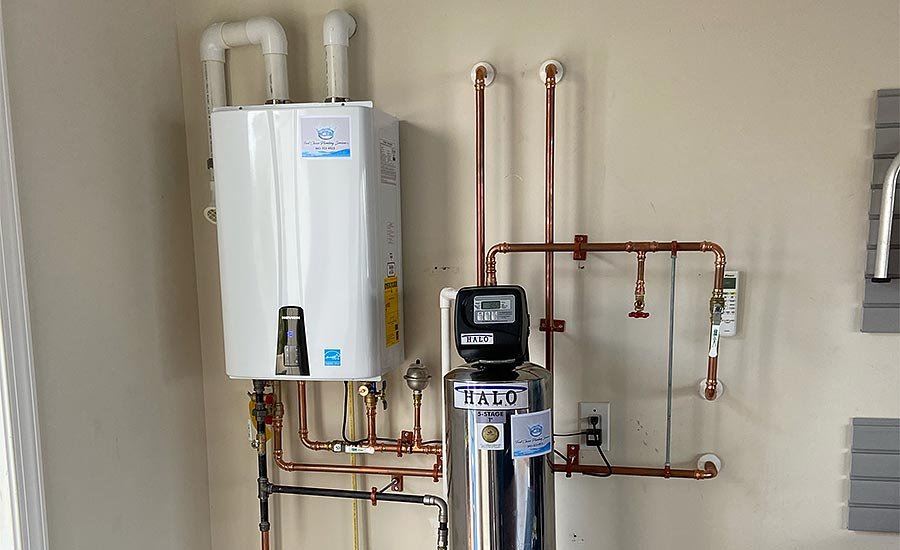
Installed Halo 5 Water Filtration System
Plumbing and water quality experts often recommend Halo due to its reliability and comprehensive filtration capabilities. It consistently meets industry standards and often exceeds them, providing reassurance that you're choosing one of the best systems available.
If you’re considering a Halo water system, think about the specific needs of your home and the long-term benefits it can offer. Visit the Halo website or contact a local distributor to learn more about how a Halo water system can be tailored to fit your lifestyle. Remember, clean water isn't just a luxury—it's a necessity for a healthy life! Call Chenevert’s Plumbing today and get your halo water system installed.
In crafting this piece, I've aimed to provide a balanced and comprehensive look at why Halo water systems are a top choice for many homeowners. Whether you’re looking to improve your water quality or make a smart home upgrade, Halo offers a solution that meets both needs effectively.

